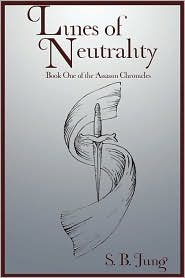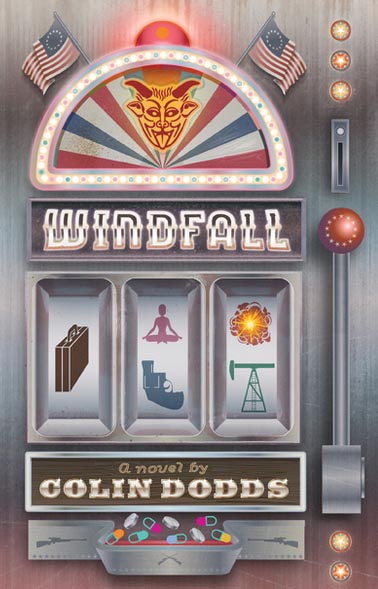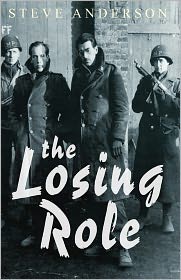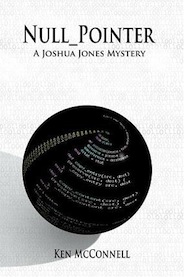No matter what your line of work, there’s always some kind of unspoken, professional ethic to it. There are certain things you are expected to do, and certain things that you just should never do. In my line of work, nicking someone else’s kill is at the top of that list. —Christian
Two assassins, both members of the shadowy Society of Assassins, are hired to kill the same target, a mobster named Dimitri Oshenka, causing one of them to break one of the unwritten rules of the game. This turn of events rises the question, who hired two assassins to take on Oshenka and why?

Christian recognizes Raven through his rifle scope as she kills Oshenka, and he decides to take her on to address the violation of unwritten professional assassin code. As a caged bird -- a term used to describe an assassin who is pledged to an outside organization -- Delacroix is of lower rank than Raven Yin, therefore risking a great deal, for she ranks above all others outside the inner circle of the Council itself, and her words as well as her actions are law: If she kills him, his death will mean nothing to the Society. But pride and anger won't let him walk away.
The two meet at Yin's favorite hangout, The Raven's Roost. Delacroix not only intrudes on Yin's place of rest, he sizes her up and makes her reveal her name in a public place – all highly disrespectful moves on his part that require, according to Society law, a blood duel to to settle honor. They make their way to her apartment where she gets rough with him and the truth comes out: they were both hired to do the same job by Tommy Marzano. The question that now remains is, why?
Part of the reason why the book was chosen by me to review was its interesting concept – two assassins hired to kill the same target – and its clever use of two alternating first person points of view that promise to take the reader on an unusual journey through the mental scape of unusual characters. As Raven and Christian tell their story, the reader gets a view into the workings of their minds, which is the best part of the story.
While the choice is interesting and initially compelling, it seems more suited perhaps to a story about how Christian and Yin develop a relationship rather than a struggle to unravel a mystery. Also the action sequences are lessened because they are described from the point of view of someone presumably used to them and therefore they come across as unremarkable. Indeed, the more you think about the point of view choice, the more it becomes apparent that an assassin like Raven would only consciously think about any action and killing if it had somehow been remarkable, given her experience. So all those sequences when she kills—Raven wouldn’t think much about them. That’s the problem with first person in this type of thriller, where presumably part of the attraction for the reader is the action: from a first person point of view of the assassin, such action wouldn’t be very noteworthy unless the action is fundamentally challenging and out of the ordinary for Raven, creating the need for her to plan and plot in her mind. But all we get are just reports on how she easily walks in and out of Marzano’s trap and other places and this makes for a reduction in tension and suspense.
The writing overall is fluent and clean, and it is much better edited than the average self-published book. But there are some issues, the biggest of which is plot, which is hardly a surprise as plot is the element that always disappoints in many self-published books. In
Lines of Neutrality, the plot underperforms as well.
While the complication that Delacroix and Yin face in having been assigned the same target is compelling, it does not lead to the creation of a clear line of action that climaxes with the revelation of the answer. You expect the first part of the story conflict to be essentially defined by the problem of discovering the reason for Marzano having hired both assassins to kill the same target. For instance, you expect that the subsequent action follow some set of steps Raven and Christian would take, steps unique to who they are and to their world, in order to unravel the mystery. What is the process, for example, they would go through as members of the Society? Surely the Society must have some way of finding these things out, as it is more than likely that such a thing has happened before. But such issues don't inform the narrative's progress.
The next story movement has Yin go to collect the other half of her fee from Marzano. But how that relates to her problem of finding the answer to why he hired her and Christian is unclear. In this story movement Marzano tries to coerce Raven to work for him, a somewhat odd move on his part since he presumably knows about the Society and the fact that Raven, given her high standing, is not someone you can simply push around. No matter how stupid Marzano was, he wouldn’t be that dumb. The outcome has Christian assassinate Oshenka. Some other sequence is needed here, perhaps one that begins the process of making inquiries. Indeed, the only way, it would seem to me given this situation, that she could find out why would be to agree to work for Marzano. But getting rid of Marzano before they can find out from him why he hired them both, or before they can use him to ferret out the answer, is confusing. The question that began to the story—the why of Marzano’s actions—remains open. Rather than creating suspense, however, the open question only engenders confusion because Marzano’s death does not deliberate it.
Subsequent events are, consequently, somewhat confusing as well. It is unclear so as to whether Raven going to see Carlos Corazon is her taking a new assignment or Christian’s. The reason for the confusion is the bit in the apartment where Raven and Christian first meet. There she has a look into the envelope and sees him next assignment, but we never find out what this assignment is. If Corazon is a new assignment, then more is needed: How do assassins get their assignments? Is there a secret Society website? Do they get messages on the Blackberries? Or do they have to come into an underground center where they all meet and get new assignments? Such bits add to the verisimilitude of the story and make it fun. If someone else is the target, then that needs to be raveled, too, for keeping it a mystery seems to serve no deeper story purpose.
S.B. Jung's novel is certainly based on a promising concept and Jung can write fluent, clean copy, but
Lines of Neutrality is lessened by its ineffective plotting.
This book is available through
Amazon.com
 In
a world paralyzed by an unprecedented outbreak, Clint mans the CDC hotline, a solitary beacon of dwindling hope. Then, one
fateful day, a call comes in. Clint finds himself navigating a delicate situation involving a mysterious woman, hinted at
in classified files, who may possess the coveted cure. As the world remains under a suffocating lockdown, Clint's every
word, every choice, holds the weight of untold futures.
In
a world paralyzed by an unprecedented outbreak, Clint mans the CDC hotline, a solitary beacon of dwindling hope. Then, one
fateful day, a call comes in. Clint finds himself navigating a delicate situation involving a mysterious woman, hinted at
in classified files, who may possess the coveted cure. As the world remains under a suffocating lockdown, Clint's every
word, every choice, holds the weight of untold futures.
 In
the frozen heart of Wyoming, the Trinity Meat Processors stands as a beacon of rehabilitation. Here, men with no pasts
and blank slates find purpose under the watchful eye of Pastor Isiah. Asher, unsettled by the sudden disappearance of
his friend after a confrontation with a mysterious intruder, races against time, battling forgotten truths and moral
dilemmas.
In
the frozen heart of Wyoming, the Trinity Meat Processors stands as a beacon of rehabilitation. Here, men with no pasts
and blank slates find purpose under the watchful eye of Pastor Isiah. Asher, unsettled by the sudden disappearance of
his friend after a confrontation with a mysterious intruder, races against time, battling forgotten truths and moral
dilemmas. Sara makes a startling discovery through an at-home ancestry kit:
She possesses a unique immunity to the elusive Jessica Kitner Syndrome. This revelation
doesn't go unnoticed. OriginPoints, the DNA test company, approaches her with a
proposition that might demand the ultimate sacrifice.
Sara makes a startling discovery through an at-home ancestry kit:
She possesses a unique immunity to the elusive Jessica Kitner Syndrome. This revelation
doesn't go unnoticed. OriginPoints, the DNA test company, approaches her with a
proposition that might demand the ultimate sacrifice.
 West
Germany, 1949. Former actor Max Kaspar suffered greatly in the Second World War. Now he owns a nightclub in
Munich—and occasionally lends a hand to the newly formed CIA. Meanwhile, his brother Harry has ventured
beyond the Iron Curtain to rescue an American scientist. When Harry is also taken captive, Max resolves to
locate his brother at all costs. The last thing he expects is for Harry to go rogue.
West
Germany, 1949. Former actor Max Kaspar suffered greatly in the Second World War. Now he owns a nightclub in
Munich—and occasionally lends a hand to the newly formed CIA. Meanwhile, his brother Harry has ventured
beyond the Iron Curtain to rescue an American scientist. When Harry is also taken captive, Max resolves to
locate his brother at all costs. The last thing he expects is for Harry to go rogue.
 After
the events in
After
the events in  In
the early days of post-war Germany, Captain Harry Kaspar has been assigned by the
US military government to oversee recovery efforts in the town of Heimgau.
Unfortunately, the post is already occupied by Major Membre. It seems that the
office that assigned Membre supersedes the one that picked Kaspar, and
obviously the major outranks the captain.
In
the early days of post-war Germany, Captain Harry Kaspar has been assigned by the
US military government to oversee recovery efforts in the town of Heimgau.
Unfortunately, the post is already occupied by Major Membre. It seems that the
office that assigned Membre supersedes the one that picked Kaspar, and
obviously the major outranks the captain.
 A dark speck slips from dormancy, where it has been trapped for millennia. It is utterly alien, singularly enthralling, and devastatingly lethal. What follows in its wake are chaos and death.
A dark speck slips from dormancy, where it has been trapped for millennia. It is utterly alien, singularly enthralling, and devastatingly lethal. What follows in its wake are chaos and death.
 The story takes place in 1979 South America in an unspecified country, where a successful rebellion against a Communist regime has proven to be the same, if not worse, than the last government. Father Lupe, a village priest, and his brother Dr. Aramos, decide to take matters into their own hands to save their people. Rather than lead a rebellion that would result in thousands of lost lives and dubious victory, the brothers turn to a rabbi, Avenidas, with a solid knowledge of Kabbalah mysticism to create a golem. However, the golem is not made from dirt and clay, but instead from Dr. Aramos himself because he has been rendered emotionally hollow from a great tragedy and loss from a few years ago. According to Rabbi Avenidas, the reasoning is that a human golem can make judgments based on how humans think instead of blindly finishing the task with a great deal of collateral damage. If the golem goes rogue, the rabbi can end its life; if the golem kills the rabbi who created it, the golem dies as well. With the help of an American mercenary named Les Cohen, Dr. Aramos embarks on a journey for personal revenge and public liberation at the expense of his own soul against The General, who rules the region, Colonel Sanchez Rodriguez, and the Muertemos who work for The General.
The story takes place in 1979 South America in an unspecified country, where a successful rebellion against a Communist regime has proven to be the same, if not worse, than the last government. Father Lupe, a village priest, and his brother Dr. Aramos, decide to take matters into their own hands to save their people. Rather than lead a rebellion that would result in thousands of lost lives and dubious victory, the brothers turn to a rabbi, Avenidas, with a solid knowledge of Kabbalah mysticism to create a golem. However, the golem is not made from dirt and clay, but instead from Dr. Aramos himself because he has been rendered emotionally hollow from a great tragedy and loss from a few years ago. According to Rabbi Avenidas, the reasoning is that a human golem can make judgments based on how humans think instead of blindly finishing the task with a great deal of collateral damage. If the golem goes rogue, the rabbi can end its life; if the golem kills the rabbi who created it, the golem dies as well. With the help of an American mercenary named Les Cohen, Dr. Aramos embarks on a journey for personal revenge and public liberation at the expense of his own soul against The General, who rules the region, Colonel Sanchez Rodriguez, and the Muertemos who work for The General. A man with no past, but who holds the future of the world in his hands. A woman who has sworn to protect him, for reasons she does not understand. A killer who must destroy them, or lose all he holds dear. They are running—from each other, from the plague that is killing all around them, from the dark forces beyond their understanding. Running from shadow to shadow. From dark to dark. Hoping to find light. Hoping that this darkness is not all there is. Hoping…because hope is all they have in This Darkness Light.
A man with no past, but who holds the future of the world in his hands. A woman who has sworn to protect him, for reasons she does not understand. A killer who must destroy them, or lose all he holds dear. They are running—from each other, from the plague that is killing all around them, from the dark forces beyond their understanding. Running from shadow to shadow. From dark to dark. Hoping to find light. Hoping that this darkness is not all there is. Hoping…because hope is all they have in This Darkness Light.
 Seth Tatton is a "middle-of-the-pack attorney" struggling to help his suburban family keep up with the Joneses. Through his firm, he becomes a fixer; he gets things done no matter what the job entails. He's clean, methodical, and a stickler for detail.
Seth Tatton is a "middle-of-the-pack attorney" struggling to help his suburban family keep up with the Joneses. Through his firm, he becomes a fixer; he gets things done no matter what the job entails. He's clean, methodical, and a stickler for detail.
 Kill Screen by Benjamin Reeves is as creepy as a late-night session of
Kill Screen by Benjamin Reeves is as creepy as a late-night session of  Honey McGuinness is an addict. Booze, cigarettes, drugs, industrial chemicals, sex. You name it. Honey's addictions aren't the result of a spoiled brat living off of Daddy's credit card. No, Honey earned hers the old fashioned way: a horrible childhood. Her mother committed suicide and her father sexually abused her. The girl's got a hole in her heart that nothing but love can fill. Unfortunately, the world Honey lives in seems to be fresh out of love.
Honey McGuinness is an addict. Booze, cigarettes, drugs, industrial chemicals, sex. You name it. Honey's addictions aren't the result of a spoiled brat living off of Daddy's credit card. No, Honey earned hers the old fashioned way: a horrible childhood. Her mother committed suicide and her father sexually abused her. The girl's got a hole in her heart that nothing but love can fill. Unfortunately, the world Honey lives in seems to be fresh out of love.
 A former diplomatic security agent, a religious phenomenologist and an ambitious reporter sift through science and myth to uncover the truth behind a sinister biotech company’s miraculous life-extension product.
A former diplomatic security agent, a religious phenomenologist and an ambitious reporter sift through science and myth to uncover the truth behind a sinister biotech company’s miraculous life-extension product. Late in 1944, the German Army pressed westward along the western front in a desperate attempt to break the Allied advance. The offensive would later come to be known as
Late in 1944, the German Army pressed westward along the western front in a desperate attempt to break the Allied advance. The offensive would later come to be known as  Hodge created a lovely chick-lit/thriller storyline that reminds me of Charlaine Harris’ Lily Bard mysteries that I love to eat up. The main character, Amber Fox, is a jilted ex-cop out for revenge against her incompetent superior officer, Janice Skipper, whose goal in life is to look beautiful, destroy others more competent that herself, and snag Amber’s Latin Lover for herself. Her dismissal from the Hertfordshire police force forces her to work for her ex-fiance in order to make ends meet. The storyline follows the disappearance of a famous fashion designer and his latest collection. The story has a lot of promise, and some simple clean-up would help the story flow better and reach a more diverse audience. The characters are mostly fun and the story is a nice read. The love triangle Amber Fox finds herself in is a nice touch of humanity and vulnerability, though her indecision gets to be much after awhile. We don’t want a heroine with a penchant for whining, do we?
Hodge created a lovely chick-lit/thriller storyline that reminds me of Charlaine Harris’ Lily Bard mysteries that I love to eat up. The main character, Amber Fox, is a jilted ex-cop out for revenge against her incompetent superior officer, Janice Skipper, whose goal in life is to look beautiful, destroy others more competent that herself, and snag Amber’s Latin Lover for herself. Her dismissal from the Hertfordshire police force forces her to work for her ex-fiance in order to make ends meet. The storyline follows the disappearance of a famous fashion designer and his latest collection. The story has a lot of promise, and some simple clean-up would help the story flow better and reach a more diverse audience. The characters are mostly fun and the story is a nice read. The love triangle Amber Fox finds herself in is a nice touch of humanity and vulnerability, though her indecision gets to be much after awhile. We don’t want a heroine with a penchant for whining, do we? Steve Church, an American businessman, is visiting Dr. Ted Coogan, a friend of his father's, in Paris before a business trip to Morocco. Coogan and Steve's father were both in the CIA together. Although both are retired, Steve feels that Coogan would prove to be a great resource for the Arab world. Unknown to Steve at the time, Coogan is part of a research team charged with verifying the authenticity of a recently recovered copy of the Qur'an that differs from the established text. His work is considered blasphemous by many Muslims. As such, Coogan's home is ransacked and Coogan himself is attacked while away in Germany. Steve is asked to pick up Coogan at the airport, and the two are photographed together by a reporter.
Steve Church, an American businessman, is visiting Dr. Ted Coogan, a friend of his father's, in Paris before a business trip to Morocco. Coogan and Steve's father were both in the CIA together. Although both are retired, Steve feels that Coogan would prove to be a great resource for the Arab world. Unknown to Steve at the time, Coogan is part of a research team charged with verifying the authenticity of a recently recovered copy of the Qur'an that differs from the established text. His work is considered blasphemous by many Muslims. As such, Coogan's home is ransacked and Coogan himself is attacked while away in Germany. Steve is asked to pick up Coogan at the airport, and the two are photographed together by a reporter.
 Null_Pointer is a fresh take on the amateur sleuth mystery genre with a hacker turned detective at its center. The action takes place in a world just enough removed from the ordinary to make the story interesting. The high concept at its core makes it surprisingly satisfying.
Null_Pointer is a fresh take on the amateur sleuth mystery genre with a hacker turned detective at its center. The action takes place in a world just enough removed from the ordinary to make the story interesting. The high concept at its core makes it surprisingly satisfying. Christian recognizes Raven through his rifle scope as she kills Oshenka, and he decides to take her on to address the violation of unwritten professional assassin code. As a caged bird -- a term used to describe an assassin who is pledged to an outside organization -- Delacroix is of lower rank than Raven Yin, therefore risking a great deal, for she ranks above all others outside the inner circle of the Council itself, and her words as well as her actions are law: If she kills him, his death will mean nothing to the Society. But pride and anger won't let him walk away.
Christian recognizes Raven through his rifle scope as she kills Oshenka, and he decides to take her on to address the violation of unwritten professional assassin code. As a caged bird -- a term used to describe an assassin who is pledged to an outside organization -- Delacroix is of lower rank than Raven Yin, therefore risking a great deal, for she ranks above all others outside the inner circle of the Council itself, and her words as well as her actions are law: If she kills him, his death will mean nothing to the Society. But pride and anger won't let him walk away.